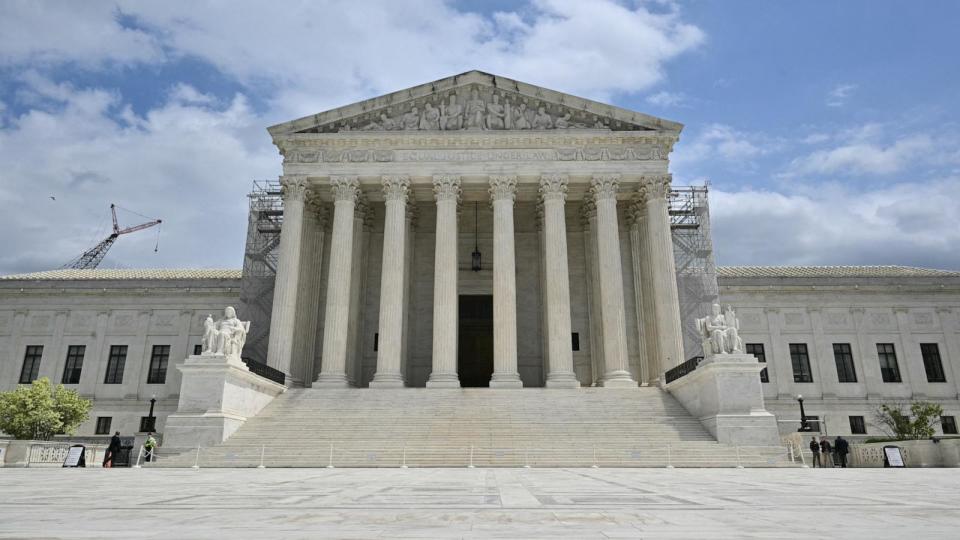Supreme Court upholds Consumer Financial Protection Bureau in major win for Biden, Democrats

The Supreme Court on Thursday upheld the Consumer Financial Protection Bureau and how Congress decided to fund the agency, rejecting a constitutional challenge by the banking industry and preserving a broad set of regulations that govern everything from credit cards to personal loans and home mortgages.
The court's decision, a 7-2 ruling with Justices Samuel Alito and Neil Gorsuch dissenting, is a major victory for the Biden administration and Democrats who have championed the independent agency as a bulwark against corporate financial abuses after the 2008 crash.
MORE: Supreme Court hears heated debate over Consumer Financial Protection Bureau
Conservatives have spent years attacking the CFPB as a source of undue and costly government regulation. This case centered on a group of payday lenders that alleged the indirect funding of the CFPB through the Federal Reserve System rather than annual congressional appropriations violated the Constitution's Appropriations Clause, which says no taxpayer funds should be spent without "appropriations made by law."
Justice Clarence Thomas, who wrote the opinion, said while the associations made several arguments for why the agency's funding mechanism was constitutionally unsound, "none is persuasive."
"Under the Appropriations Clause, an appropriation is simply a law that authorizes expenditures from a specified source of public money for designated purposes," Thomas wrote. "The statute that provides the Bureau's funding meets these requirements. We therefore conclude that the Bureau's funding mechanism does not violate the Appropriations Clause."
In a statement to ABC News, a CFPB spokesperson called the Supreme Court's decision "a resounding victory for American families and honest businesses alike."
"For years, lawbreaking companies and Wall Street lobbyists have been scheming to defund essential consumer protection enforcement," the spokesperson said. "The Supreme Court has rejected their radical theory that would have devastated the American financial markets. The Court repudiated the arguments of the payday loan lobby and made it clear that the CFPB is here to stay."

The court's opinion by Thomas was joined by Chief Justice John Roberts and Justices Sonia Sotomayor, Elena Kagan, Amy Coney Barrett and Ketanji Brown Jackson.
Justice Kagan wrote in a concurring opinion the bureau's funding scheme, "if transplanted back to the late-18th century, would have fit right in."
MORE: Supreme Court gives president more control over Consumer Financial Protection Bureau
Justice Alito, in a dissent joined by Gorsuch, blasted the majority's interpretation as creating a loophole that would allow Congress to create agencies that "spend public funds in perpetuity" without direct oversight by Congress.
"The Framers would be shocked, even horrified, by this scheme," Alito wrote.
"In sum, centuries of historical practice show that the Appropriations Clause demands legislative control over the source and disposition of the money used to finance Government operations and projects," he wrote.
ABC News' Elizabeth Schulze and Alexandra Hutzler contributed to this report.
Supreme Court upholds Consumer Financial Protection Bureau in major win for Biden, Democrats originally appeared on abcnews.go.com

 Yahoo News
Yahoo News 
